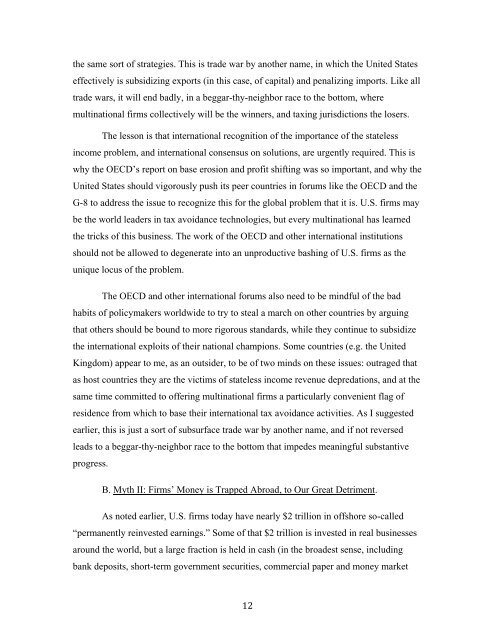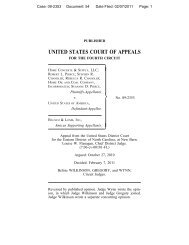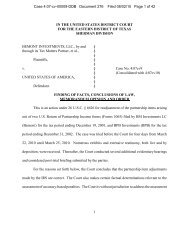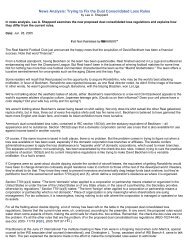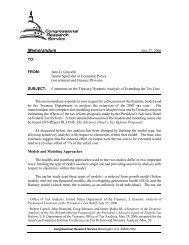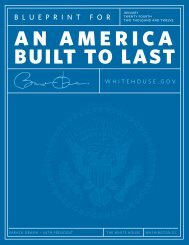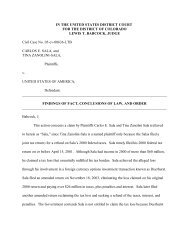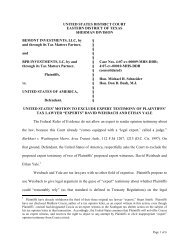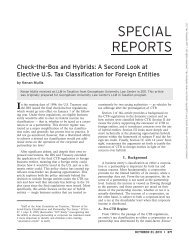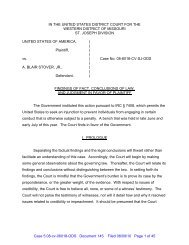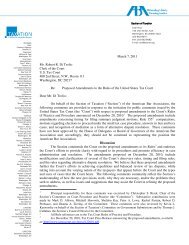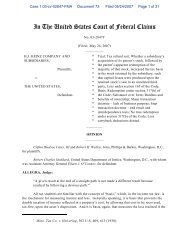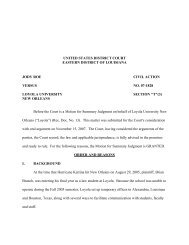1 TESTIMONY OF PROF. EDWARD D. KLEINBARD HEARING ...
1 TESTIMONY OF PROF. EDWARD D. KLEINBARD HEARING ...
1 TESTIMONY OF PROF. EDWARD D. KLEINBARD HEARING ...
- No tags were found...
You also want an ePaper? Increase the reach of your titles
YUMPU automatically turns print PDFs into web optimized ePapers that Google loves.
the same sort of strategies. This is trade war by another name, in which the United Stateseffectively is subsidizing exports (in this case, of capital) and penalizing imports. Like alltrade wars, it will end badly, in a beggar-thy-neighbor race to the bottom, wheremultinational firms collectively will be the winners, and taxing jurisdictions the losers.The lesson is that international recognition of the importance of the statelessincome problem, and international consensus on solutions, are urgently required. This iswhy the OECD‟s report on base erosion and profit shifting was so important, and why theUnited States should vigorously push its peer countries in forums like the OECD and theG-8 to address the issue to recognize this for the global problem that it is. U.S. firms maybe the world leaders in tax avoidance technologies, but every multinational has learnedthe tricks of this business. The work of the OECD and other international institutionsshould not be allowed to degenerate into an unproductive bashing of U.S. firms as theunique locus of the problem.The OECD and other international forums also need to be mindful of the badhabits of policymakers worldwide to try to steal a march on other countries by arguingthat others should be bound to more rigorous standards, while they continue to subsidizethe international exploits of their national champions. Some countries (e.g. the UnitedKingdom) appear to me, as an outsider, to be of two minds on these issues: outraged thatas host countries they are the victims of stateless income revenue depredations, and at thesame time committed to offering multinational firms a particularly convenient flag ofresidence from which to base their international tax avoidance activities. As I suggestedearlier, this is just a sort of subsurface trade war by another name, and if not reversedleads to a beggar-thy-neighbor race to the bottom that impedes meaningful substantiveprogress.B. Myth II: Firms‟ Money is Trapped Abroad, to Our Great Detriment.As noted earlier, U.S. firms today have nearly $2 trillion in offshore so-called“permanently reinvested earnings.” Some of that $2 trillion is invested in real businessesaround the world, but a large fraction is held in cash (in the broadest sense, includingbank deposits, short-term government securities, commercial paper and money market12


